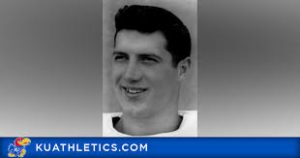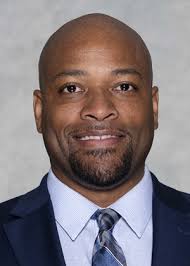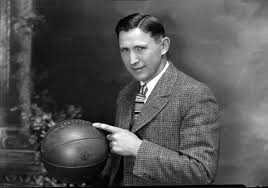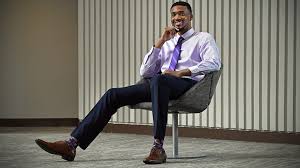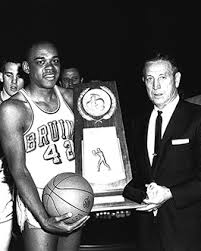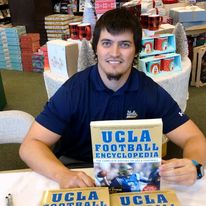The NBA Finals date back to 1947 (when they were known as the Basketball Association of America Finals) and the very 1st NCAA tourney was held in 1939. Olympic basketball competition is even older: it debuted as a demonstration event in 1904 and the men’s version became a medal sport in 1936, with the women finally getting their chance to go for the gold in 1976. The United States has dominated Olympic basketball competition from the start: the men have won 15 gold medals in the 18 tournaments they have participated in during the past 84 years, while the women have won 8 gold medals in the 10 tournaments in which they have competed during the past 44 years. Those of you who were looking forward to the 2020 Olympics opening ceremonies in Tokyo on July 24, 2020 will have to wait an extra 364 days, as the coronavirus caused a postponement until July 23, 2021. Due to the absence of college basketball since mid-March, HoopsHD’s Jon Teitel decided to fill the void by trying to interview as many prior Olympic players/coaches as possible so that you have something to read this summer while not watching the Summer Games. We continue our coverage by chatting with Jack Rodgers about his friend/teammate Charlie Hoag winning an NCAA title and gold medal in 1952.
Charlie was born in Oklahoma and went to high school in Illinois: what made him choose Kansas? He was born in Guthrie, OK, in 1931 and his family later moved to Oak Park, IL. I met him during high school and along with Bob Mayer we became close friends. Charlie’s family was from Oklahoma and had put pressure on him to go to Oklahoma even thought he was good enough to go to any school that he wanted. Bud Wilkinson was the Oklahoma football coach and recruited Charlie and I with our parents in Oak Park. He offered football scholarships to both of us and invited us to fly down the following weekend to visit the campus. Coach Wilkinson and his staff did an excellent job of recruiting us and we both left OU thinking that would be our 1st choice. Warren Woody, a successful/wealthy insurance executive for Equitable, was a huge KU fan who lived in Chicago and had been recruiting Charlie for some time so the following weekend we were invited to visit the campus at Kansas. The only difference is that instead of the coaches it was the players who did the recruiting, and the frosting on the cake was when Coach Phog Allen came into the picture. He knew that we loved basketball and went out of his way to meet us and got Coach Jules Sykes to agree that after the football season we were welcome to join the basketball team. Charlie was an unbelievable athlete in grade school and high school: he ran track and the 1st time he did the broad jump at a grade school meet he jumped over the pit! They moved the starting point back 1 foot, he jumped again…and still made it over the pit but hurt his arm on his landing. In high school Charlie won the Illinois state discus championship and set a new state record. He was a sports hero and everyone loved him.
He played basketball/football/track at Kansas: which sport was he best at, and which sport did he enjoy the most? He was the best at all of them so I assume he loved them all! I think that basketball was his favorite because he reached goals that he did not reach in other sports. However, were it not for a football injury in 1952 he might have given Billy Vessels a run for the Heisman Trophy. We also loved playing basketball for Phog Allen/Dick Harp.
What made Allen such a great coach, and what was the most important thing that Charlie ever learned from him? He was a basketball icon and an interesting person. He was a philosopher who loved to talk/preach/share his beliefs. He imprinted his values on his players and we were no exception. He was a great coach who had a great assistant in Coach Harp who was the X’s and O’s man. Everyone loved/respected Phog and we played our hearts out for him.
In the 1952 NCAA title game he scored 9 PTS in a win over St. John’s: what did it mean to him to win a title? I did not make the traveling squad so I listened to the game on the radio in the athletic dorm at KU. Dean Smith was also a close friend on the team. I lived the win vicariously with Charlie and Dean when they returned and we celebrated together. Soon after that we were excited to see 7 of our players going to the Olympics. It meant a lot to Charlie but he never bragged about it.
That summer he was 1 of 7 Jayhawks (with Allen serving as assistant coach) who won a gold medal at the 1952 Olympics: what did it mean to him to win a gold medal, and what was the reaction like when the team got back to Lawrence? The gold medal was as meaningful to Charlie as the NCAA title was. Just like anyone else would be who won a gold medal for his country, he was bursting with pride to have had the opportunity. Charlie played well throughout the tournament and represented himself/his country/KU with pride.
He was a 2-time All-Conference tailback, still holds the school record with 3233 career all-purpose yards, and was picked in the 1st round of the 1953 NFL Draft by Cleveland: how devastated was he after suffering a career-ending knee injury in the 1953 Kansas-Kansas State football game? Charlie and I both had knee surgeries during Thanksgiving vacation of our senior year and it kept both of us off the basketball team that winter. I was more upset about it because most of the other Olympians had graduated and I could have finally made the traveling team! I think that Charlie took it better than I did because he had already achieved so many of his goals. That KU team went on to lose to Indiana in the 1953 NCAA title game by 1 PT: if Charlie was on that team then I think we would have won back-to-back titles.
He spent some time in the Air Force: what impact did his service have on him either on or off the court? We joined the Air Force ROTC together during college and served 2 years as lieutenants after graduating. I served in Arizona and Charlie was in Texas. The Air Force experience was a good transition from college while we were planning our business careers after we were discharged.
After retiring from basketball he worked as an insurance broker: how did he get into the business, and how did he like it? Warren Woody, who recruited Charlie to go to KU, looked out for his athletes after graduation and made sure that Charlie was offered a job as an insurance salesman. He worked there for several years and later became an insurance manager in Topeka, which was his primary business career.
In 2008 he was inducted into the Kansas Athletics Hall of Fame: where did that rank among the highlights of his career? I think that he took it in stride. He was happy about it and his family was very proud as well.
He passed away in 2012: when people look back at his career, how do you think that he should be remembered the most? As I remember him! He is still placed on a pedestal for the athlete he was and I am happy that I was there to share the experience with him. I spoke at his funeral in Lawrence along with Bob and we highlighted all of his accomplishments: it brought him back to us as we remembered his greatness as an athlete, person, friend, and family member.

